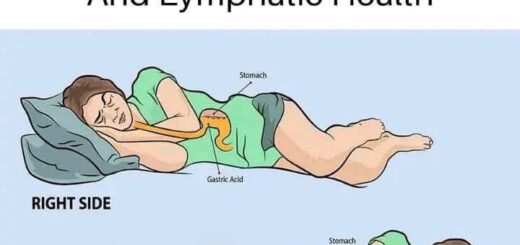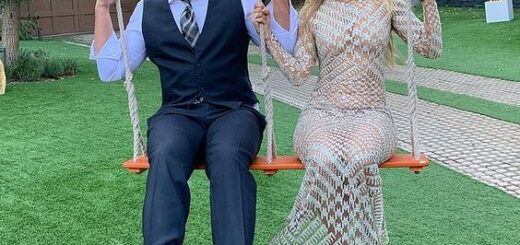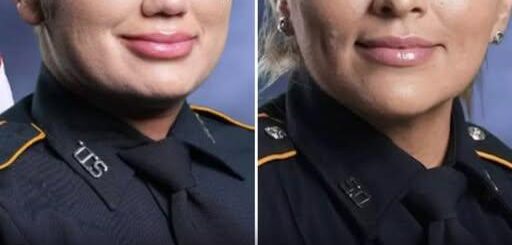On July 18, 2025, Paul McCartney, Bob Dylan, and Bruce Springsteen stood together for the first and only time—not for fame, but for Diana. There were no cameras, no press—just candlelight, white roses, and a grief that still hadn’t healed after 28 years. McCartney whispered, “This one’s for you, Diana. We never stopped missing you,” before his voice cracked during Let It Be. Dylan’s raspy Knockin’ on Heaven’s Door echoed against old footage of Diana hugging sick children. Springsteen closed the night with You’ll Never Walk Alone, but halfway through, his eyes filled, his voice breaking as he murmured, “We’re still walking with you, Lady Di.” In the front row, Prince William’s shoulders shook as he held Kate’s hand. Prince Harry quietly sobbed, whispering to Meghan, “She would’ve loved this.” Even King Charles, known for his restraint, could be seen dabbing his eyes, unable to contain the weight of the moment. There was no encore. No speeches. Just silence—heavy, sacred, and soaked in memory. And in that stillness, Diana’s light came back—if only for one night.
A Night the World Stood Still: Paul McCartney, Bob Dylan, and Bruce Springsteen Unite in Song to Honor Princess Diana
It was a night that history will remember — not for its glitz, nor its grandeur, but for its aching beauty and staggering emotional weight.
On the evening of July 18, 2025, under the starlit skies above Windsor Castle, three of the greatest musicians of all time—Paul McCartney, Bob Dylan, and Bruce Springsteen—stood side by side for the very first time, not to launch a tour, not to sell records, but to honor the life and legacy of one woman: Princess Diana.
The tribute, titled “A Song for Diana”, marked the 28th anniversary of her tragic passing. It wasn’t announced with fanfare. There were no commercials. No red carpet. Just an invitation-only gathering of close friends, family, and a quietly selected group of fans who had loved Diana from afar. The setting was intimate: a candlelit stage nestled against the stone walls of the castle, adorned with thousands of white roses — Diana’s favorite flower.
As the evening began, a hush fell over the crowd. The first to take the stage was Paul McCartney. Dressed simply in a black suit, he walked slowly to the piano and took a deep breath before playing the opening notes of “Let It Be.” The words, familiar to millions, felt different tonight — weighted with grief and tenderness. His voice cracked slightly on the line “Mother Mary comes to me,” and many in the audience could be seen quietly wiping away tears. As the final chord faded, McCartney whispered, “For Diana, with all our love.”
Then came Bob Dylan.
Stoic as ever, he stood alone under a single spotlight with his guitar. But when he began “Knockin’ on Heaven’s Door,” it was as if time stopped. The raspy voice that once carried the weight of protest now carried sorrow — raw, unfiltered, and devastating. Behind him, the large screen lit up with old footage of Diana — dancing with her sons, hugging sick children in hospitals, laughing beside landmine victims in Angola. The images flickered like memories, and the crowd watched in silence, hearts breaking all over again.
Finally, Bruce Springsteen took the stage. He didn’t need to say a word. With only an acoustic guitar and harmonica, he began a soul-stirring rendition of “You’ll Never Walk Alone.” Halfway through the song, McCartney joined on piano, and Dylan reappeared with quiet backing vocals. It was unplanned — or at least, it felt that way. The moment was pure, unrehearsed, and profoundly human.
The three legends stood shoulder to shoulder, their voices blending in harmony not just with each other, but with the grief of a nation that still hadn’t healed.
In the front row, Prince William held his wife Kate’s hand tightly. Next to them, Prince Harry wiped a tear as Meghan gently rested her head on his shoulder. Even King Charles, known for his composed public persona, could be seen dabbing his eyes with a white handkerchief.
When the final note faded, the castle grounds remained utterly still. No applause. Just silence — deep, sacred, and full of meaning.
A minute later, a single boy walked onstage holding a candle. He placed it on the piano bench and whispered into the microphone: “Thank you for remembering my grandmother.” The audience, already on the edge, finally broke. Soft sobs could be heard throughout as people embraced, many for the first time in years.
That night wasn’t about spectacle. It was about memory. About music’s power to reach into the deepest parts of our humanity. About three men — icons in their own right — laying down their egos to honor a woman whose heart had changed the world.
There have been many concerts, many tributes, many grand gestures since Diana’s death. But this night — quiet, simple, devastatingly beautiful — may have been the most powerful of them all.
And in the gentle glow of candles and song, Diana’s light shone once more.


